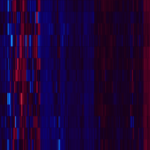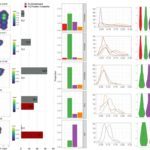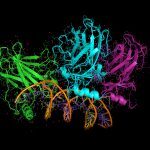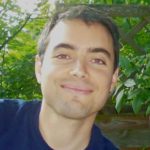Link to Pubmed [PMID] – 35294501
Link to DOI – 10.1371/journal.ppat.1010375
PLoS Pathog 2022 Mar; 18(3): e1010375
The protozoan parasite Leishmania donovani causes fatal human visceral leishmaniasis in absence of treatment. Genome instability has been recognized as a driver in Leishmania fitness gain in response to environmental change or chemotherapy. How genome instability generates beneficial phenotypes despite potential deleterious gene dosage effects is unknown. Here we address this important open question applying experimental evolution and integrative systems approaches on parasites adapting to in vitro culture. Phenotypic analyses of parasites from early and late stages of culture adaptation revealed an important fitness tradeoff, with selection for accelerated growth in promastigote culture (fitness gain) impairing infectivity (fitness costs). Comparative genomics, transcriptomics and proteomics analyses revealed a complex regulatory network associated with parasite fitness gain, with genome instability causing highly reproducible, gene dosage-independent and -dependent changes. Reduction of flagellar transcripts and increase in coding and non-coding RNAs implicated in ribosomal biogenesis and protein translation were not correlated to dosage changes of the corresponding genes, revealing a gene dosage-independent, post-transcriptional mechanism of regulation. In contrast, abundance of gene products implicated in post-transcriptional regulation itself correlated to corresponding gene dosage changes. Thus, RNA abundance during parasite adaptation is controled by direct and indirect gene dosage changes. We correlated differential expression of small nucleolar RNAs (snoRNAs) with changes in rRNA modification, providing first evidence that Leishmania fitness gain in culture may be controlled by post-transcriptional and epitranscriptomic regulation. Our findings propose a novel model for Leishmania fitness gain in culture, where differential regulation of mRNA stability and the generation of modified ribosomes may potentially filter deleterious from beneficial gene dosage effects and provide proteomic robustness to genetically heterogenous, adapting parasite populations. This model challenges the current, genome-centric approach to Leishmania epidemiology and identifies the Leishmania transcriptome and non-coding small RNome as potential novel sources for the discovery of biomarkers that may be associated with parasite phenotypic adaptation in clinical settings.















